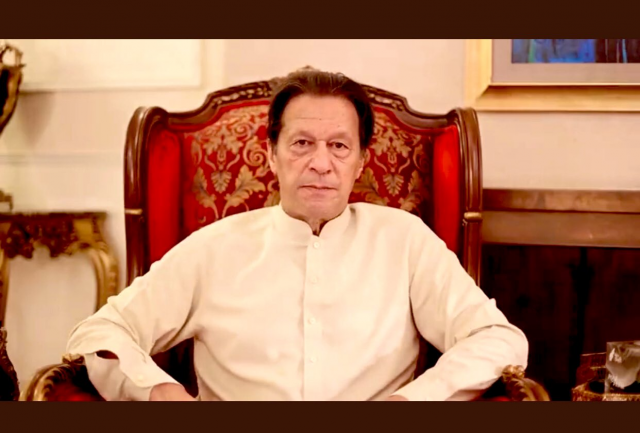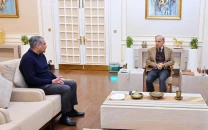Toshakhana trial against Imran starts today
Islamabad judge issues notices for hearing of criminal proceedings

The district court of Islamabad started the criminal proceedings against Pakistan Tehreek-e-Insaf (PTI) Chairman and former prime minister Imran Khan after receiving the Toshakhana reference on Monday, forwarded by the Election Commission of Pakistan (ECP).
The ECP had sent the reference to the Islamabad district and sessions judge under sections 137, 170, 167 of the Election Act. Now, Additional Sessions Judge Zafar Iqbal will conduct the hearing from Tuesday (today), for which notices had been issued.
While sending the reference to the district court, the district election commissioner (DEC) said in the complaint that the court should try Imran Khan for corrupt practices and submitting false assets details. The DEC also requested the court to accept the complaint and punish Imran Khan under sections 167 and 173.
The reference had been forwarded to the district court after the ECP ordered criminal action against the PTI chief in its consensus verdict in Toshakana reference last month. If the corrupt practices proved, Imran Khan could be sentenced to three years in jail and a fine.
In its verdict, a four-member ECP bench also disqualified the former prime minister and ruled that the PTI chief was no more a member of the National Assembly. It further stated that Imran had submitted a false affidavit and was found involved in corrupt practices under Article 63(1)(p) of the Constitution.
In the verdict, ECP also declared that Khan had made “false statements and incorrect declarations, therefore he had also committed the offence of corrupt practices defined under Sections 167 and 173 of the Elections Act – an offence punishable under Section 174 of the Elections Act.
Last week, the PTI, in a plea in the Lahore High Court (LHC), challenged the law under which Imran was disqualified. The PTI’s lawyers urged the court to form a larger bench due to the “importance of the case”. LHC Justice Sajid Mehmood Sethi sent the case file to the chief justice for constituting a larger bench.
Additional Attorney General (AAG) Nasar Ahmed raised objection to the maintainability of the petition. However, the petitioner’s counsel, Azhar Siddique, implored the court to take into consideration the importance of the case and send the matter before a larger bench – something the AAG did not disagree with.
The petitioner’s counsel further argued that it remained to be examined whether or not the ECP could disqualify any member of parliament, noting that the electoral watchdog was neither a court nor did it possess judicial powers to pass a verdict on the matter.
Advocate Siddique also contended that the ECP had exceeded its jurisdiction while disqualifying Imran because only an election tribunal had the authority to disqualify a member of parliament. The ECP lawyer sought 15 days’ time for filing the reply.
The petitioner’s had requested the court that Section 137(4) of the Election Act, 2017 be declared ultra vires the Constitution, with further contention that the concerned authorities, especially the ECP be restrained from taking any action or proceedings in this matter as the ECP was not a court of law.
The petition also stated that the Article 63(1)(p) states that an individual is, “for the time being, disqualified from being elected or chosen as a member of the Majlis-e-Shoora (parliament) or of a provincial assembly under any law for the time being in force”.
However, the petition argued, this provision did not apply to Imran Khan’s case as the sections mentioned in the ECP's verdict do not mention “disqualification”. "Whilst Article 63(1) (p) of the Constitution permitted punishment mentioned in any law for the time being in force", it added.
The petition further argued that not sharing details of Toshakhana gifts and proceeds from sales did not lead to disqualification. It could occur only when prosecution was commenced within 120 days of filing under Articles 63(2) and (3) of the Constitution.
"The ECP has deliberately erred in law and has utterly failed to comprehend its own governing law," it alleged, adding that the electoral watchdog "has adopted an incorrect interpretation and has gone beyond its mandate and the mandate of law, thereby violating the Constitution”.



















COMMENTS
Comments are moderated and generally will be posted if they are on-topic and not abusive.
For more information, please see our Comments FAQ